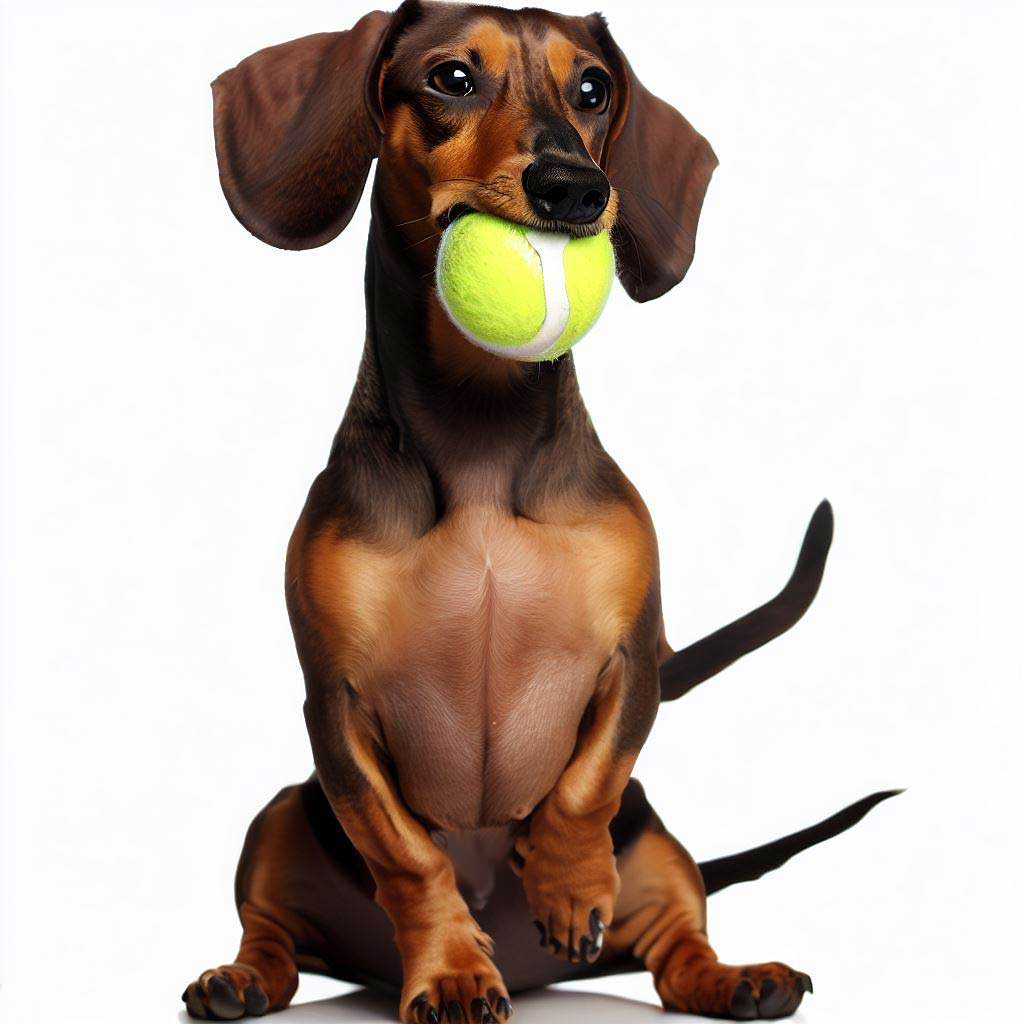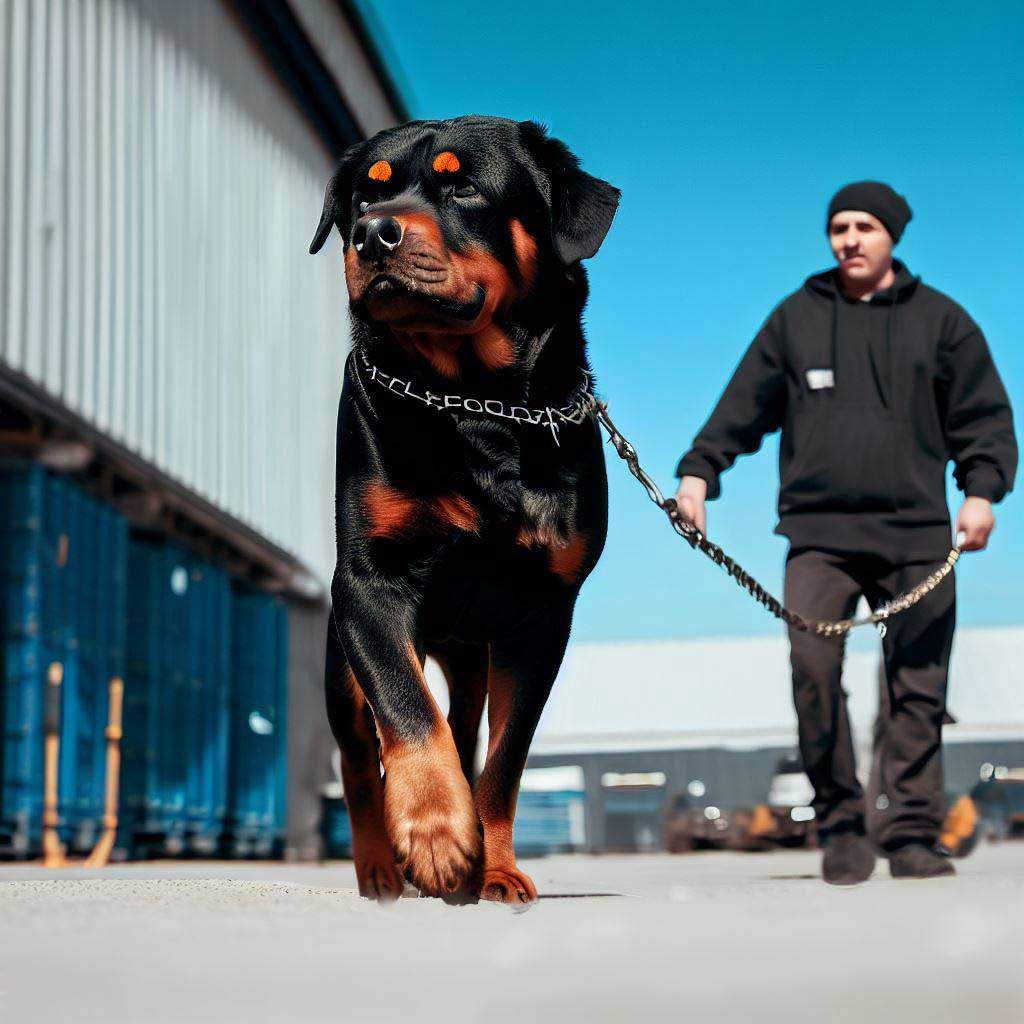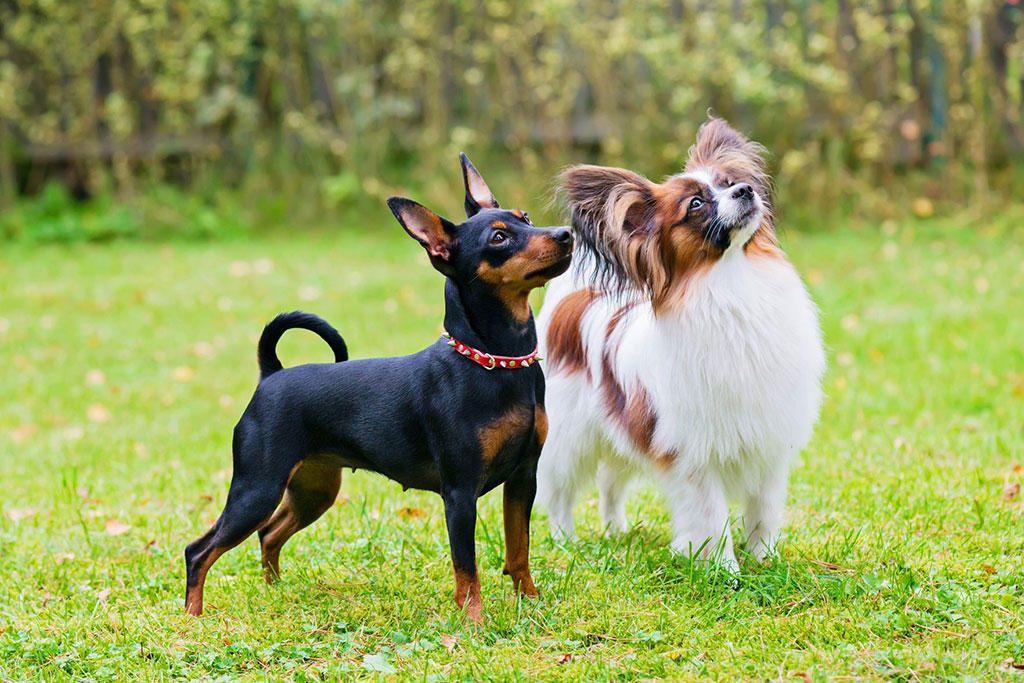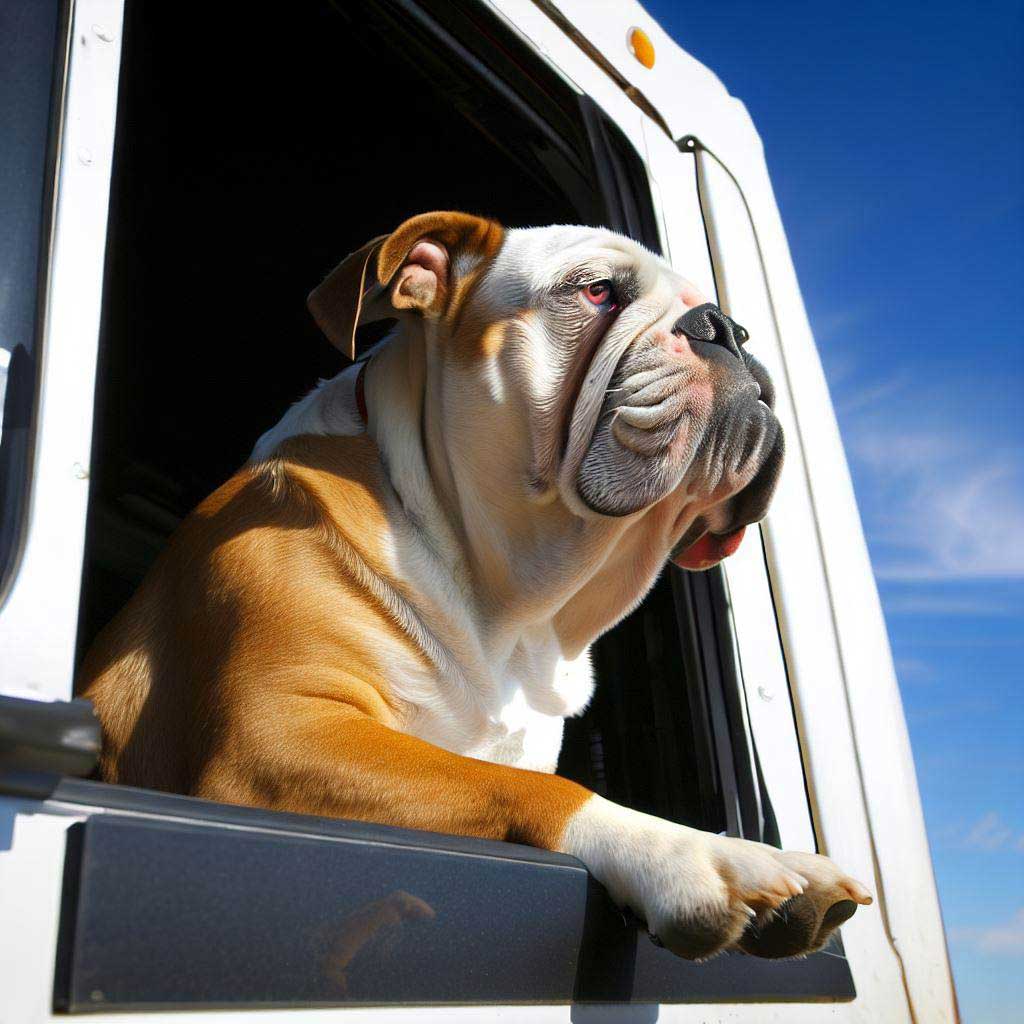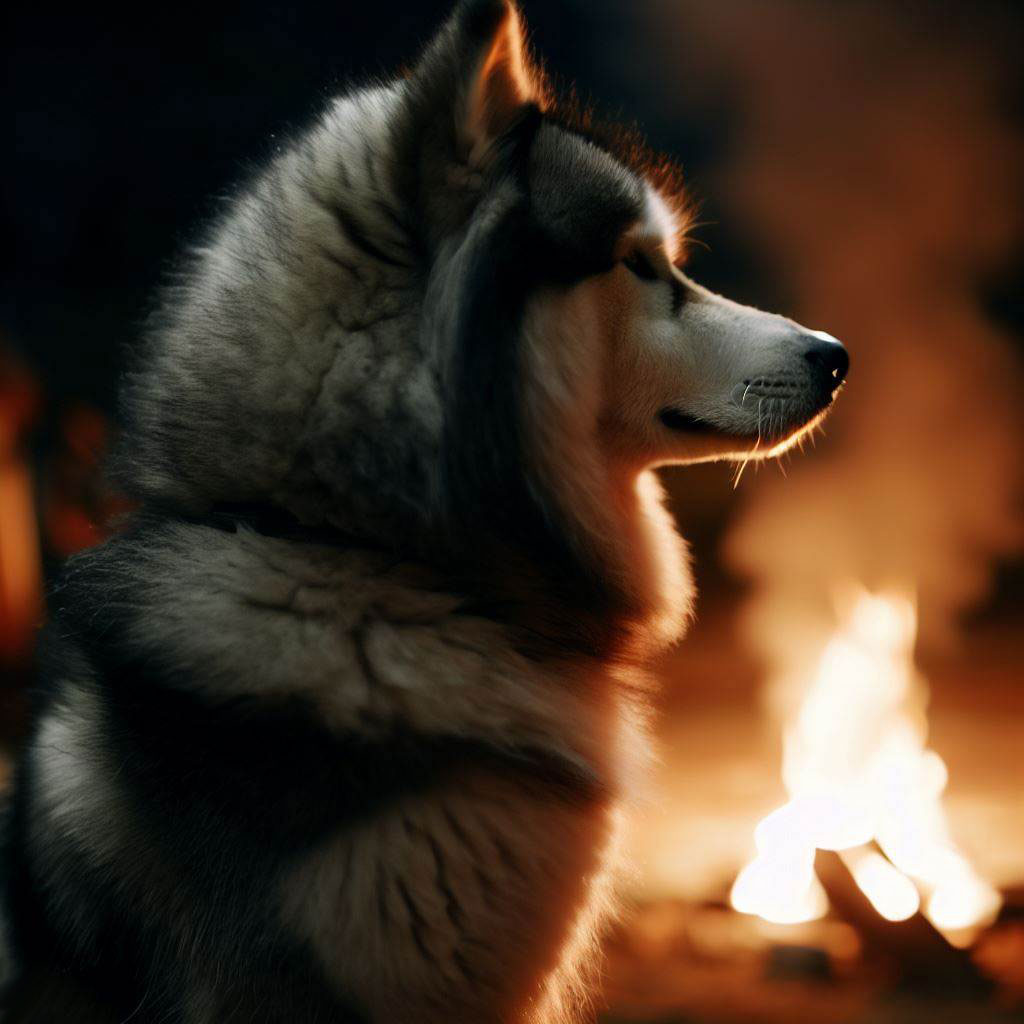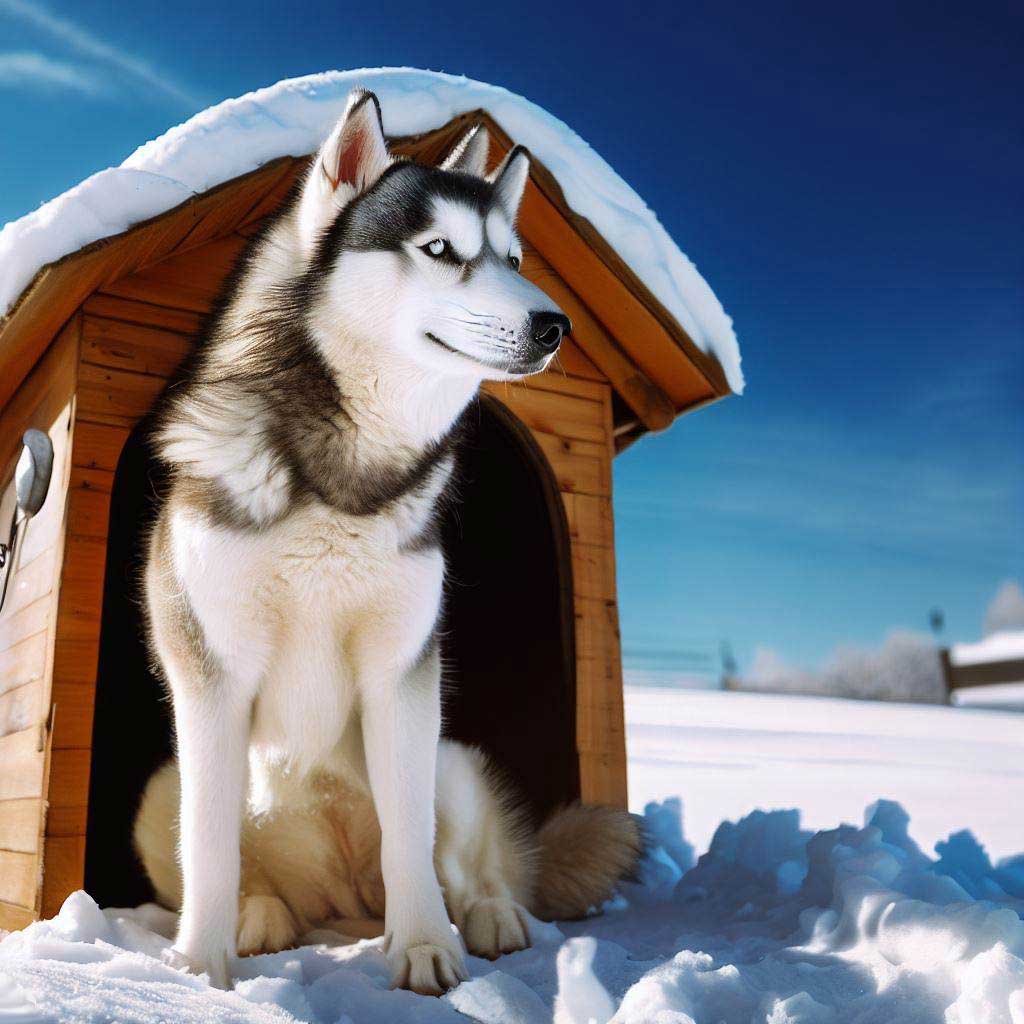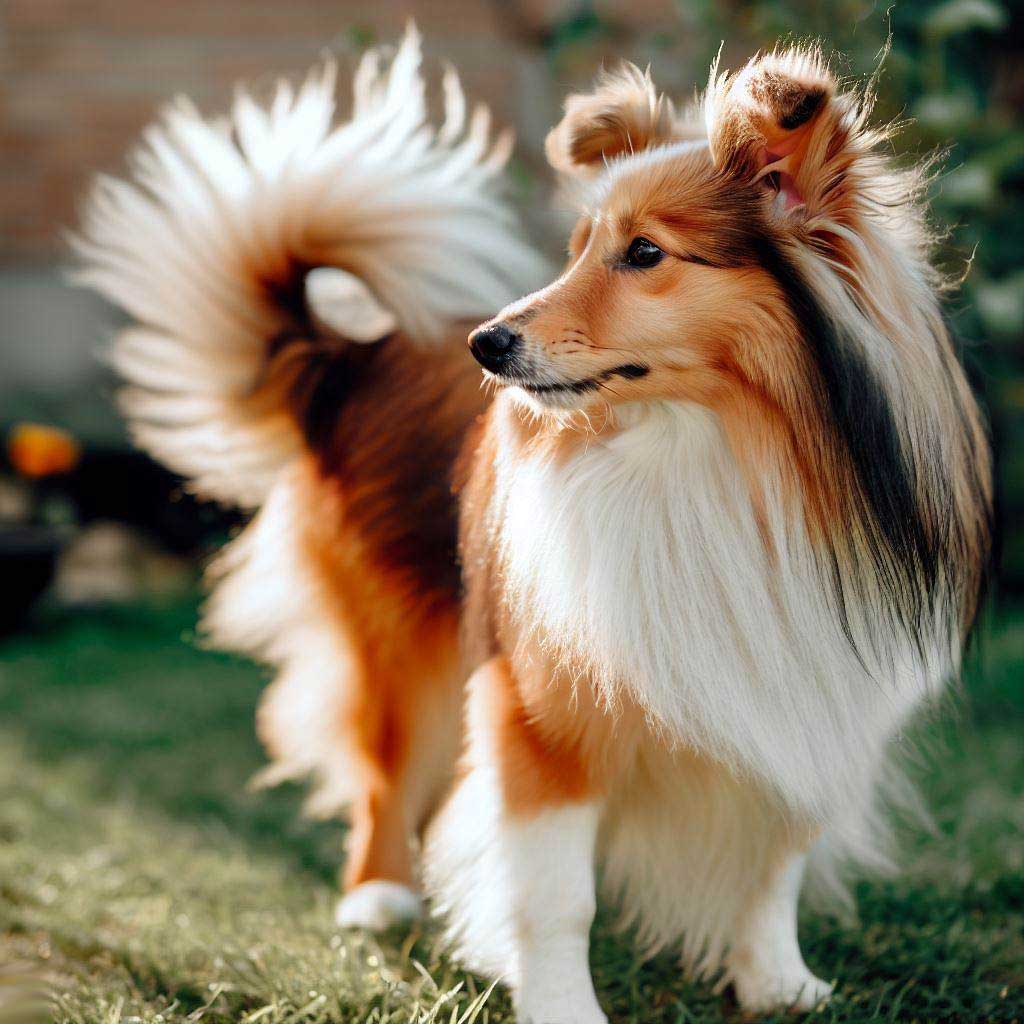Table of Contents
ToggleBest Dogs to Play Fetch: Top 13 Dog Breeds. Dive into our expert guide and discover which dog breeds excel at playing fetch.
What Is A Game of Fetch?
Playing fetch is more than just a fun game; it’s a bonding experience that offers mental and physical stimulation for your furry friend. Whether you’re a first-time dog owner or an experienced handler, engaging in the age-old tradition of throwing a ball and having your canine companion retrieve it can provide hours of enjoyment and exercise.
As you begin this exciting adventure, you’ll discover why fetch is so beloved and how it can become a daily highlight for both you and your pet.
Choosing the right breed
Not all breeds are created equal when it comes to the game of fetch. That’s why identifying the best dogs to play fetch with is crucial.
Certain breeds have natural instincts and physical attributes that make them more adept at chasing, retrieving, and enjoying this specific form of play. Selecting a breed that aligns with the game’s demands not only maximizes enjoyment but also ensures that your dog’s physical and mental needs are met.
Understanding the traits that make a breed suitable for fetch allows you to create a more fulfilling and enjoyable playtime experience.
Introduction to the top 13 best dogs to play fetch
Now, if you’re ready to discover the best dogs to play fetch with, look no further. We’ve meticulously researched and identified the Top 13 Breeds that excel in this exhilarating game.
From the energetic Labrador Retriever to the agile Border Collie, these breeds have proven to be not only eager but also exceptionally skilled in playing fetch. Their natural tendencies, coupled with proper training, can turn a simple game into an extraordinary experience.
As you explore these top picks, you’ll gain insight into why each breed shines in this specific activity and how you can harness their natural abilities to create a joyful and long-lasting fetch-playing relationship. So, buckle up and prepare to embark on a rewarding journey to find the best dogs to play fetch with, one that will surely bring endless wagging tails and happy faces.
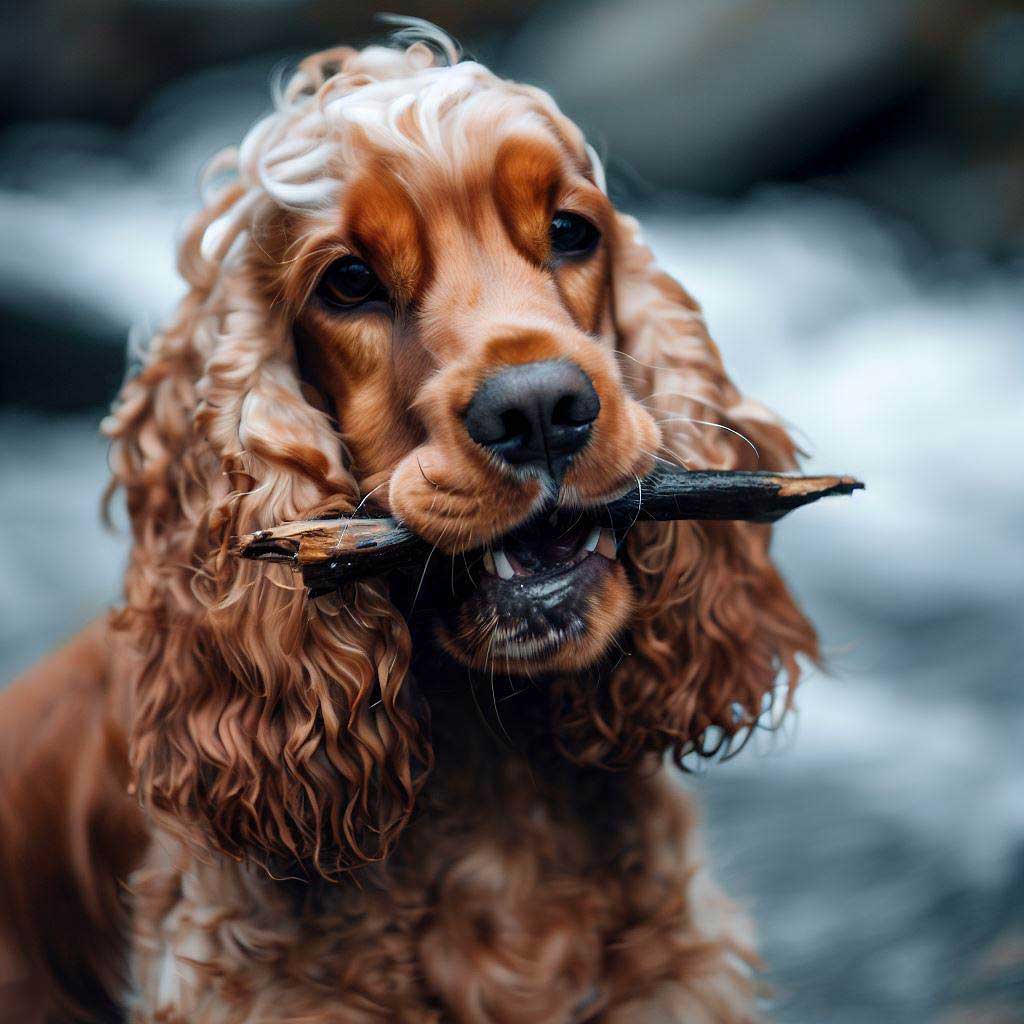
The Top 13 Best Dogs to Play Fetch
1. Labrador Retriever
Traits that make it ideal:
Known as one of the best dogs to play fetch, the Labrador Retriever’s friendly and obedient nature makes them a natural fit. Their strong build, intelligence, and enthusiasm for retrieving make them perfect for the game.
Training tips for fetch:
Start with short throws using a soft toy. Gradually increase distance and complexity. Praise and reward them to reinforce positive behavior.
Health considerations:
Ensure that the game is played on a soft surface to avoid joint strain. Regular check-ups with the vet are essential to monitor overall health.
2. Golden Retriever
Traits that make it ideal:
Golden Retrievers are synonymous with fetch. Their friendly temperament and natural retrieving instincts make them one of the best dogs to play fetch.
Training tips for fetch:
Use positive reinforcement and consistency. Start slow, and gradually make the game more challenging as they master the basics.
Health considerations:
Be mindful of their joints, particularly as they age. Adequate exercise without overdoing it is key to keeping them healthy.
3. Border Collie
Traits that make it ideal:
The Border Collie, known for its agility and intelligence, makes an exceptional fetch player. Their herding instinct translates well into the game, and they’re often regarded as one of the best dogs to play fetch.
Training tips for fetch:
Utilize their natural instinct to chase by starting with moving toys. Reward them with treats and praise for returning the object.
Health considerations:
Regular exercise is vital for this high-energy breed, but be cautious about the intensity to avoid unnecessary strain on their joints.
4. Australian Shepherd
Traits that make it ideal:
The Australian Shepherd, with its agility, intelligence, and herding instincts, excels at fetch. They’re not only energetic but also quick learners, making them ideal candidates for the game.
Training tips for fetch:
Engage their herding instinct by using a ball or frisbee. Start with short distances, and gradually increase as they become more skilled.
Health considerations:
Monitor their energy levels and provide adequate rest between sessions. Understanding good dog nutrition to replenish all the burned energy is essential for maintaining their overall health.
5. Poodle
Traits that make it ideal:
Don’t let the elegant appearance fool you; Poodles are among the best dogs to play fetch. Their intelligence and agility make them quick learners, and they enjoy the mental and physical stimulation that fetch provides.
Training tips for fetch:
Use a variety of toys to keep them engaged. Praise and treats will reinforce positive behavior. Start with short throws and gradually increase the difficulty.
Health considerations:
Regular grooming is vital to keep them comfortable. Be mindful of their exercise needs and avoid overexertion.
6. German Shorthaired Pointer
Traits that make it ideal:
German Shorthaired Pointers are built for fetch. Their strong legs, agility, and natural retrieving instincts make them perfect for the game.
Training tips for fetch:
Start with the basic 7 commands to train a dog and then work up to retrieving exercises using a soft object. Gradually increase the complexity of the game as they master the basics. Consistency and positive reinforcement are key.
Health considerations:
A balanced diet and regular exercise are vital for this energetic breed. Avoid overexertion and provide enough rest and hydration.
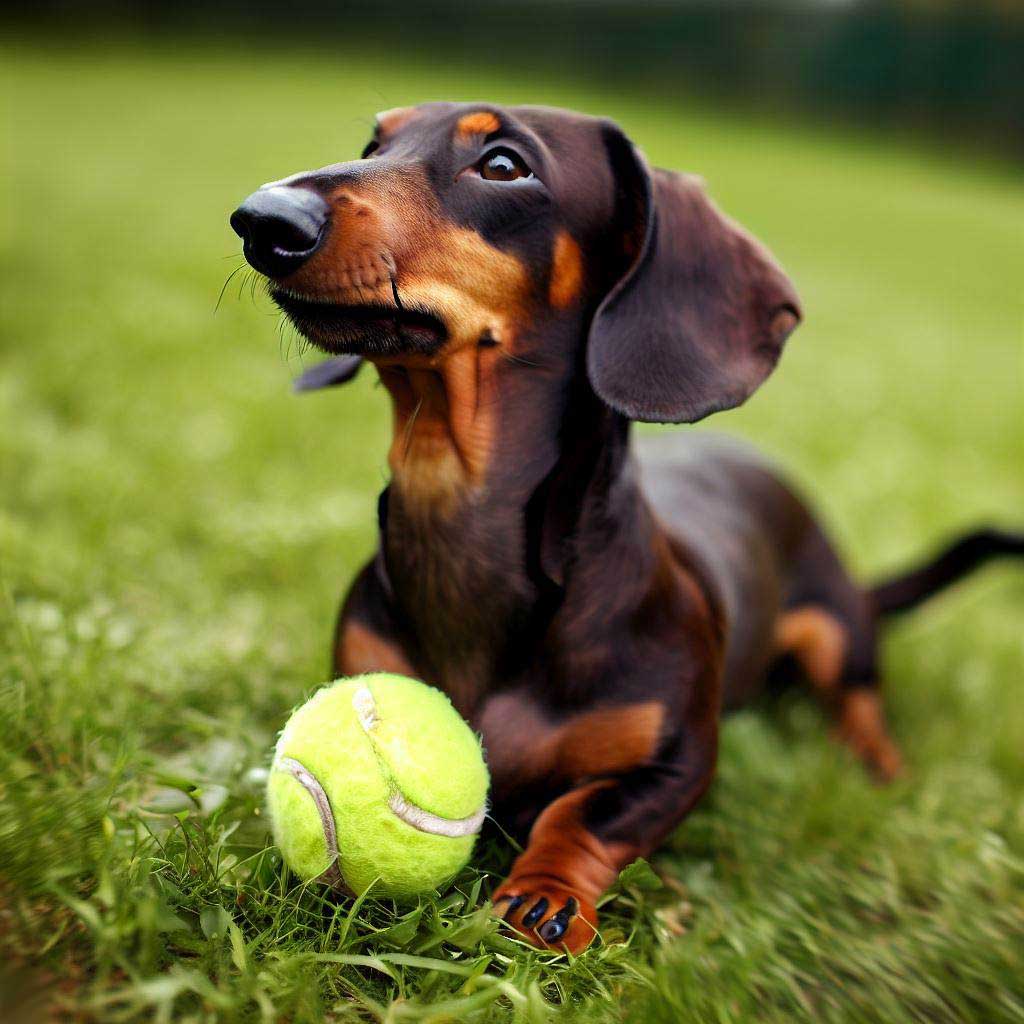
7. Beagle
Traits that make it ideal:
Beagles, with their keen sense of smell and curious nature, are great fetch players. Their tracking skills add excitement to the game, making them one of the best dogs to play fetch.
Training tips for fetch:
Using scented toys can stimulate their interest. Start with close throws, and increase the distance as they learn.
Health considerations:
Monitor their weight, and provide moderate exercise to keep them fit. Regular vet check-ups are advisable.
8. Cocker Spaniel
Traits that make it ideal:
Cocker Spaniels are naturally playful and love to retrieve. Their soft mouth and enthusiastic attitude make fetch a delightful game for them.
Training tips for fetch:
Use soft toys initially and praise them generously. Gradual progression will help them master the game.
Health considerations:
Pay attention to their ears and coat, and ensure that exercise is balanced with rest.
9. Boxer
Traits that make it ideal:
Boxers are known for their strength and agility, making them strong contenders in the fetch game. They enjoy the physical exercise and mental challenge, solidifying their position among the best dogs to play fetch.
Training tips for fetch:
Use sturdy toys and start with basic retrieving exercises. Consistency and encouragement are key.
Health considerations:
Avoid playing in extreme temperatures, and maintain a balanced diet to keep them healthy.
10. Dalmatian
Traits that make it ideal:
Dalmatians are energetic and intelligent, traits that lend themselves to a good game of fetch. Their endurance and eagerness make them suitable fetch partners.
Training tips for fetch:
Introduce them to the game gradually and use various toys to keep them engaged. Praise works wonders with Dalmatians.
Health considerations:
Provide enough hydration and be aware of their unique dietary needs.
11. Miniature Schnauzer
Traits that make it ideal:
Though small, Miniature Schnauzers are spirited and love to play fetch. Their alertness and agility make them fantastic at this game.
Training tips for fetch:
Start with smaller toys and shorter distances. Consistent praise and rewards help in training.
Health considerations:
Ensure a balanced diet and regular grooming to keep them comfortable.
12. Belgian Malinois
Traits that make it ideal:
Belgian Malinois, known for their intelligence and drive, are naturally good at fetch. Their working dog background makes them one of the best dogs to play fetch with.
Training tips for fetch:
Utilize their drive by turning fetch into a rewarding game. Gradual progression and positive reinforcement are essential.
Health considerations:
Mind their diet and exercise regimen to maintain optimum health.
13. Nova Scotia Duck Tolling Retriever
Traits that make it ideal:
Specifically bred for retrieving, this breed’s natural inclination towards fetch makes them an excellent choice. Their energy and intelligence are why they’re considered one of the best dogs to play fetch.
Training tips for fetch:
Utilize water-based fetch games if possible. Gradually increasing complexity will keep them engaged.
Health considerations:
Regular vet check-ups and mindful observation of any changes in behavior are key to keeping them healthy.
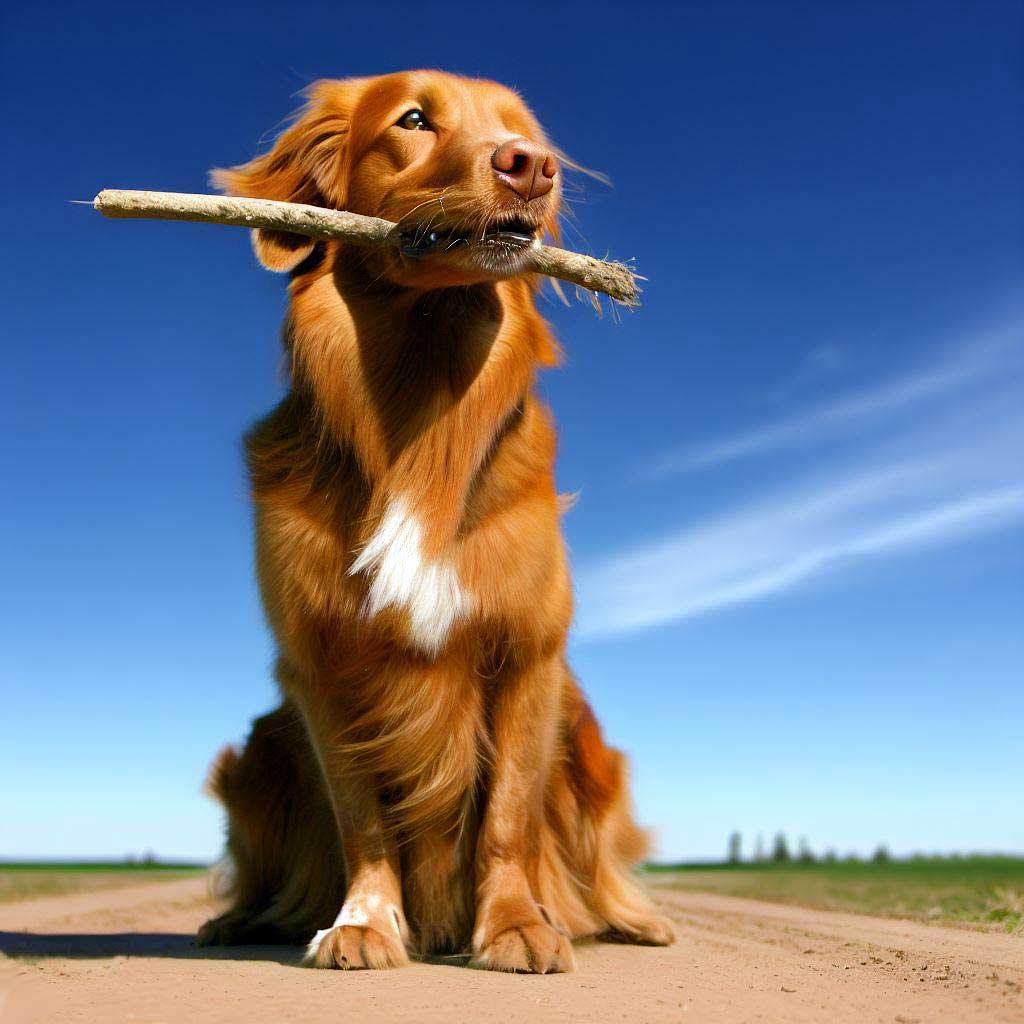
Training Tips and Considerations
Importance of Positive Reinforcement
Positive reinforcement is the cornerstone of all dog training, particularly when teaching one of the best dogs to play fetch. By rewarding desirable behavior with treats, praise, or play, you’re encouraging your dog to repeat this behavior in the future.
This method builds trust and enhances the bond between you and your canine companion. So whenever your dog successfully fetches the toy, shower them with praise. This approach reinforces the connection between the action and the reward, making it more likely for the behavior to be repeated.
Safety Measures
Playing fetch can be a fun and rewarding experience for both you and your dog. However, it’s crucial to consider their safety. Choose an appropriate area that’s free of hazards like traffic, sharp objects, or other animals that might distract or endanger your pet.
Also, select toys that are suitable for your dog’s size and strength to prevent choking or damage to their teeth. Always supervise playtime to ensure that the game remains safe and enjoyable. The best dogs to play fetch with are those that feel comfortable and secure in their environment.
Age Considerations
While the idea of teaching puppies to play fetch is appealing, it’s important to consider their age and developmental stage. Young puppies might not have the physical coordination or attention span necessary for a full game of fetch.
Starting with simple retrieve exercises and gradually building up to more complex tasks as they grow is a sensible approach. Similarly, senior dogs might have joint or health issues that limit their ability to play fetch. So understanding these age-related considerations is vital to ensure a positive experience when engaging with the best dogs to play fetch.
Understanding Individual Dog Preferences
Every dog is unique, and so are their preferences for play. Some might prefer a frisbee, while others might enjoy a ball or a plush toy.
By observing and understanding your dog’s preferences, is key to a successful fetch game. Tailor the game to suit their interests and abilities. Because after all, the goal is to have fun and bond with your pet, making them one of the best dogs to play fetch with you. Make sure you pay attention to signs of fatigue or disinterest, and adapt the game accordingly to keep it enjoyable for both of you.
Conclusion
Fetch is a classic game that many dogs love. From Labrador Retrievers to Nova Scotia Duck Tolling Retrievers, the traits that make these breeds some of the best dogs to play fetch are their intelligence, enthusiasm, and natural retrieving abilities.
The information provided above not only highlights these breeds but also hopefully offers you vital tips on training, safety, age considerations, and understanding individual dog preferences. Playing fetch with your dog can be an enriching and bonding experience, and knowing how to approach it makes it all the more rewarding.
Encouragement to Try Fetch with Your Dog
If you haven’t yet explored the joys of playing fetch with your canine friend, now’s the time to start. Whether you have one of the best dogs to play fetch or are willing to teach your furry friend, the guidelines above should pave the way for a satisfying experience.
Remember, the main goal is to have fun, build trust, and foster a deeper connection with your pet. Engage with patience, understanding, and a positive attitude, and you’ll find that playing fetch can become a favorite pastime for both of you.

FAQ: Best Dogs to Play Fetch
What makes a dog breed ideal for playing fetch?
Certain traits make some dog breeds ideal for playing fetch. These include a strong retrieving instinct, high energy levels, good obedience, and a love for interaction. Breeds that naturally exhibit these traits often become the best dogs to play fetch. They enjoy the game and are quick to learn the rules, providing endless entertainment and exercise.
How can I train my dog to play fetch if it’s not one of the top 13 breeds?
Even if your dog isn’t one of the top 13 breeds known as the best dogs to play fetch, training them can still be successful. The key is to understand your dog’s interest and abilities and adapt your training methods accordingly. Start with short, simple exercises, using positive reinforcement. Gradually increase the complexity, always being mindful of your dog’s comfort and engagement.
Are there any risks associated with playing fetch with my dog?
Playing fetch with your dog is generally safe, especially with the best dogs to play fetch. However, there are potential risks. These include injuries from collisions, muscle strain, or accidents with inappropriate toys. Ensuring proper safety measures, such as choosing the right toys and playing in a safe environment, can minimize these risks.
What are the best toys to use for playing fetch?
Selecting the right toys can make a significant difference, especially when playing with the best dogs to play fetch. Opt for toys that are appropriate for your dog’s size and chewing strength. Balls, frisbees, and specially designed fetch toys that are soft but durable are often good choices.
Can older dogs learn to play fetch?
Yes, older dogs can learn to play fetch. However, it might take more patience and understanding of their physical limitations. Modify the game to suit their abilities, and you’ll find that they can still enjoy the game, even if they are not among the best dogs to play fetch in terms of agility and speed.
How can I ensure that my dog is safe while playing fetch?
Safety is paramount, particularly when playing fetch with high-energy breeds. Choose a safe, enclosed space free from hazards, and use appropriate toys. Monitor your dog’s fatigue levels and provide water breaks as needed.
What if my dog doesn’t like to play fetch? Are there alternative games?
Not all dogs, even the best dogs to play fetch, will enjoy the game. Observe your dog’s preferences and try alternative games like tug-of-war, hide-and-seek, or agility training. The goal is to find an activity that your dog enjoys, engages with, and suits their personality.
Can small breeds be good at playing fetch?
Absolutely! Many small breeds excel at fetch. Although they may not be among the traditional best dogs to play fetch, their energy, agility, and enthusiasm can make the game enjoyable. Choose toys and playing environments that suit their size.
What’s the best way to introduce my puppy to fetch?
Introduce fetch to your puppy gradually, using simple, short exercises. Start with enticing them to chase a toy, then slowly add the retrieval element. Positive reinforcement helps them associate the game with rewards and fun.
How much exercise does playing fetch provide for my dog?
Fetch is a highly engaging exercise that provides both physical and mental stimulation. It’s particularly beneficial for energetic breeds, often considered the best dogs to play fetch. The exact amount of exercise depends on the intensity and duration of play.
What dogs are best for fetch?
Breeds like the Labrador Retriever, Golden Retriever, and Border Collie are often considered the best dogs to play fetch due to their natural retrieving instincts, intelligence, and energy.
Is fetch good or bad for dogs?
Fetch is generally good for dogs, offering exercise, mental stimulation, and bonding opportunities. However, without proper safety considerations, it can lead to potential risks.
Do some dogs not play fetch?
Yes, some dogs may not enjoy or engage in fetch. Preferences vary widely, even among the best dogs to play fetch.
Will all dogs play fetch?
No, not all dogs will play fetch. It depends on their personality, interests, and training.
Should you play fetch with a dog every day?
Playing fetch daily can be beneficial, especially for high-energy breeds. It offers regular exercise and mental stimulation. However, balance it with other activities to keep your dog engaged.
Is fetch stressful for dogs?
Fetch is generally not stressful for dogs and is often enjoyed by the best dogs to play fetch. However, forcing a disinterested or tired dog can lead to stress.
How long should I play fetch with my dog every day?
The duration should be adjusted to your dog’s energy level, age, and health. Typically, 20-30 minutes can be sufficient, especially with the best dogs to play fetch.
How long should you play fetch with a dog?
Again, the length of the game depends on your dog’s individual needs and enthusiasm.
How old should a dog be to play fetch?
Puppies can be introduced to simple fetching games, while adult dogs can play as long as they are healthy and engaged.
Is fetch mentally stimulating for dogs?
Yes, fetch provides mental stimulation by challenging dogs to think, learn, and respond.
Can dogs play fetch on concrete?
It’s best to avoid concrete as it can be hard on a dog’s joints and paws, especially if playing with high-energy breeds.
What do dogs think when you play fetch?
Seems like an odd question but we get asked this often. While we can’t know exactly what dogs think, fetch likely engages their natural instincts and provides joy, stimulation, and a sense of connection with their human companions.
What dogs are best for fetch?
Labrador Retrievers, Golden Retrievers, and Border Collies are among the top dogs renowned for their fetching skills. These dog breeds are inherently inclined to retrieve, which stems from their historical roles in hunting and herding. The joy of fetching for them is not just about play but fulfilling a deeply-rooted instinct.
What dogs like to play ball?
Most dogs with a strong retrieving or herding instinct enjoy playing with a ball. For instance, Australian Shepherds, Poodles, and even Cocker Spaniels have a natural affinity for this game. Playing ball mimics the chase and catch dynamic which many dog breeds find thrilling.
Are golden retrievers good at fetch?
Absolutely, Golden Retrievers are among the best dog breeds for fetch. Bred originally to retrieve game in hunting situations, they have a natural inclination to fetch objects, especially balls or toys. Their gentle mouths and eagerness to please make the game enjoyable for both dog and owner.
What percentage of dogs play fetch?
It’s challenging to pinpoint an exact percentage of dogs that play fetch since it varies widely based on dog breed, training, and individual temperament. However, most herding and retriever breeds have a strong instinct to play fetch. For instance, nearly all Labradors and Goldens will fetch if introduced to it correctly.
How to exercise a dog that won’t fetch?
For dogs uninterested in fetch, there are numerous alternatives for exercise. Consider agility training, tug-of-war, or even hide and seek with their favorite toys. Hiking, long walks, or engaging them in interactive toys can also keep them physically and mentally stimulated.
Small dogs that play fetch?
Many small dog breeds, like the Miniature Schnauzer or the Toy Poodle, enjoy fetch. Their compact size doesn’t diminish their zest for retrieving, and they often display as much enthusiasm as their larger counterparts.
Feisty dog breeds?
Breeds like the Jack Russell Terrier, Shiba Inu, or the Chihuahua are known for their feisty temperaments. These dogs have a lot of energy and character packed into a small frame, making them spirited companions.
Dog breeds that love to play?
Apart from the known fetching champions, dog breeds like Boxers, Dalmatians, and Beagles adore playtime. Their playful nature and boundless energy mean they’re always up for games, be it fetch, tug-of-war, or just running around.
Dog breeds that don’t play fetch?
Some breeds, particularly those bred for specific tasks like guarding or scent tracking, might not naturally take to fetch. Breeds like the Bloodhound or the Chow Chow may prefer other activities over the classic game of fetch.
My dog doesn’t want to play fetch anymore, what can I do?
It’s essential to understand why. Age, health issues, or negative experiences could influence this change. Try reintroducing the game gently, using treats and praises. If there’s reluctance, consider vet advice to rule out health concerns.
Small dogs that retrieve the quickest?
Breeds like the Papillon, Toy Poodle, or Shetland Sheepdog, despite their small stature, are agile and quick retrievers. Their alertness and dexterity often make them swift at fetching.
Are there any peculiar laws to fetch?
While there aren’t specific peculiar laws for fetch, some local regulations may govern where and how you play with your dog, especially in public spaces. Always ensure your dog is on a leash if required and respect park rules or other designated areas.
Will a golden retriever play fetch with other dogs?
Golden Retrievers are sociable dogs and often enjoy group play. If introduced correctly, they might happily play fetch alongside other dogs, taking turns or even competing to get to the ball first!
Can I include playing fetch in my puppies’ lifestyle?
Certainly! Fetch is a great way to channel a puppy’s energy. However, ensure the sessions are short to not strain their developing joints. As they grow, you can increase the duration and intensity of the fetch games as part of your puppies lifestyle.
